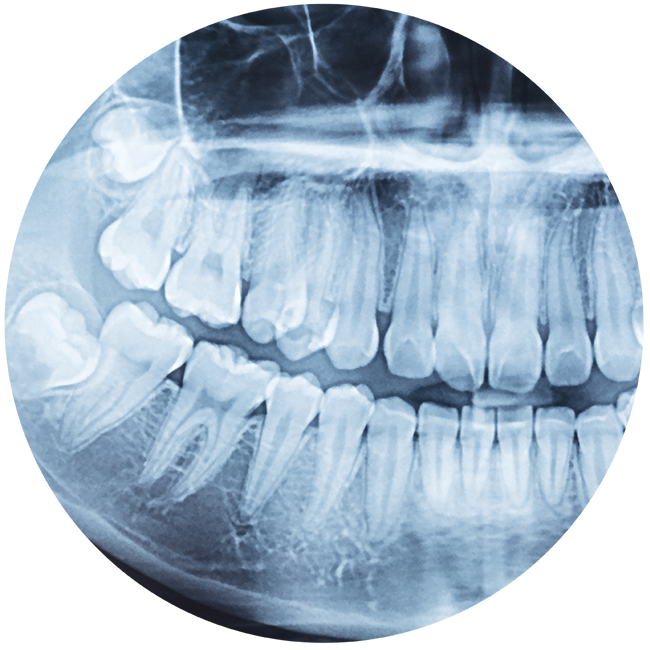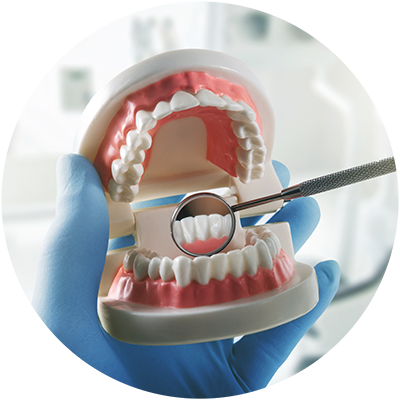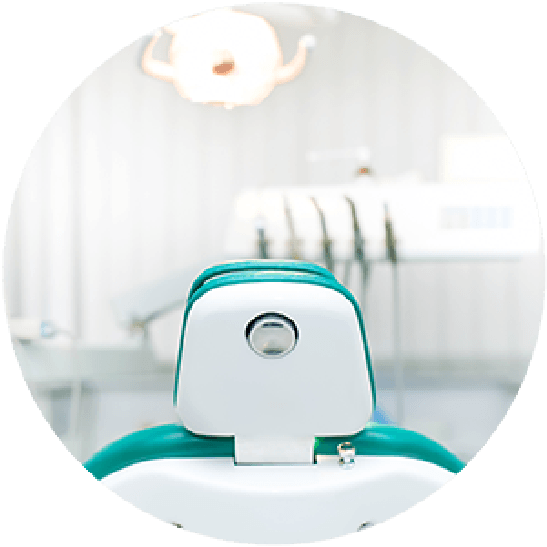Tooth Extraction in Edmonton, Alberta
Dental extraction, or “exodontia”, is needed when the structural damage on a tooth is beyond repair. At Ellerslie 66 Dental we will recommend extraction if all other options have been exhausted.
Before recommending the removal of a tooth, we will evaluate your condition by making a thorough visual examination of your tooth and by inspecting your x-rays. We will also consider your previous dental and medical history to determine if dental extraction is the right course of action for your oral health.
Exodontic procedures are recommended for:
- Impacted wisdom teeth
- Cracked or severely damaged teeth
- Severe tooth decay or infection
- Supernumerary or poorly formed teeth
- Preparation for orthodontic treatment
- Preventative measures on teeth that might become impacted or cause problems in the future

Wisdom Teeth Extractions
Impacted wisdom teeth can be problematic for many patients, causing pain and distress. Antibiotics and mouthwash can solve the problem temporarily but the ultimate solution is to have wisdom teeth extracted. At Ellerslie 66 Dental, we evaluate your wisdom teeth visually and by Panoramic x-ray. Depending on the condition of your wisdom teeth we may need to refer you to an oral surgeon to have them removed.
Wisdom teeth (or third molar) generally grow in between the ages of 17 and 25, when they “erupt” much like the rest of your permanent teeth. Most patients will have 4 wisdom teeth – upper and lower, left and right – though some may have one, two, three, or none.
The problem is that Wisdom Teeth often become impacted or infected, growing at odd angles against the other molars. Therefore they need to be extracted to alleviate pain and complications.
Offering specialized Dental Extraction in Edmonton, Ellerslie 66 can assess your personal needs and offer solutions if you have impacted wisdom teeth or are concerned about them becoming impacted in the future.
What Happens During the Tooth Extraction Procedure?
Dental Extraction is a straightforward procedure that your dental professional can perform quickly, and with very little complication. In normal cases a patient remains conscious throughout the procedure, with local anesthetic applied to numb any pain and reduce anxiety that might occur from the extraction.
In many cases removing your tooth will require a simple extraction procedure. Your dentist will remove your tooth with a special tool that allows them to rock it back and forth and to loosen it from the gum and bone tissue. In the case of impacted wisdom teeth, your dentist may have to make a small incision in your gums to help them remove the tooth.
In most cases you will feel some pressure at the extraction site, but the local anesthetic should take care of any pain.

What Should I Do After My Tooth Extraction?
After your tooth is extracted it is important to follow the directions of your dentist to encourage proper healing and prevent infection. It’s actually quite easy to encourage recovery and avoid potential complications by following these simple instructions.
Immediately after the procedure we will have you bite down on a gauze pad in order to encourage a blood clot to form in the tooth socket. We will have you leave the gauze in place until the bleeding or oozing stops. In most cases the clot will form within 2 hours, however, if you continue to bleed after this time, don’t be concerned. Clot formation may take longer in some patients. Just continue to bite down on clean gauze until you no longer see any blood.
Once the blood clot forms at the tooth extraction site, you should take precautions to reduce your risk of dry socket. Dry socket occurs when the blood clot does not properly form, or is dislodged and can cause excess pain.
Avoid activities such as brushing next to the clot, or vigorous rinsing for 24 hours. Do not drink through a straw, smoke, or drink alcohol for 72 hours. Also, limit activities that could increase your blood pressure like excessive exercise or aerobics.
If you experience any tenderness, pain, or swelling after the procedure, apply an ice pack to the site as directed by your dentist. You may also take pain medication as directed, but do not take aspirin as it can thin your blood and disturb the clot. Any pain or swelling will generally subside within 48 hours.
Be sure to drink plenty of fluids and eat only soft foods for 24 hours after the extraction. You can return to eating normal foods as soon as you feel comfortable doing so.
Finally, be sure to resume your regular tooth care routine after 24 hours. Proper brushing, flossing, and light rinsing will ensure your teeth stay healthy and prevent gum disease.

Teeth do not always need to be replaced after an extraction. This is especially true when impacted wisdom teeth are removed.
However, after your extraction, your tooth/teeth can be replaced with options such as a bridge, dental implant, or dentures. At Ellerslie 66 Dental we will be happy to consult with you to determine if replacing your extracted teeth is necessary for aesthetic or oral health reasons.
